
Puzzle video games make up a broad genre of video games that emphasize puzzle solving. The types of puzzles can test problem-solving skills, including logic, pattern recognition, sequence solving, spatial recognition, and word completion. Many puzzle games involve a real-time element and require quick thinking, such as Tetris (1985) and Lemmings (1991).
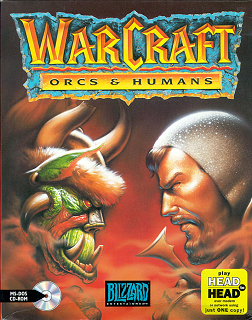
Warcraft: Orcs & Humans is a real-time strategy game (RTS) developed and published by Blizzard Entertainment, and published by Interplay Productions in Europe. It was released for MS-DOS in North America on 15 November 1994, and for Mac OS in early 1996. The MS-DOS version was re-released by Sold-Out Software in 2002.

Gobliiins is a puzzle adventure video game series, consisting of five entries, released by Coktel Vision for the Amiga, Atari ST, DOS, Macintosh, iOS and Windows platforms. The first three titles were released in the early 1990s, the fourth in 2009, and fifth in 2023. The visual look of the series and its characters were created by French artist Pierre Gilhodes, whose style was used in another game from Coktel Vision: Woodruff and the Schnibble of Azimuth.

Think Fast is an American children's game show which aired on Nickelodeon from May 1, 1989, to March 30, 1990, with reruns airing weekly until June 29, 1991.
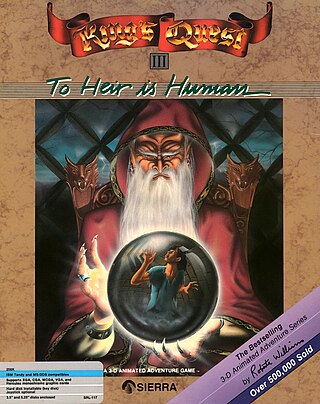
King's Quest III: To Heir Is Human is the third installment in the King's Quest series of graphic adventure games developed and released by Sierra On-Line in 1986. The game was originally released for the Apple II and MS-DOS, and later ported to several other computer systems. It was the first title game in the series not to feature King Graham as the player character.

Super Columns is a tile-matching puzzle video game released by Sega for the Game Gear in 1995. It was later included on the Coleco Sonic, along with the original Columns, to which it is a sequel.

At The Carnival is a puzzle video game by Cliff Johnson published in 1989 by Miles Computing.

Crosswords DS is a puzzle video game developed by American studio Nuevo Retro games released by Nintendo for the Nintendo DS handheld video game console. It was previously released in Australia as CrossworDS but a new OFLC entry confirmed that Nintendo Australia re-released it with a European localization. Crosswords DS features over 1,000 crossword puzzles that the player solves by using the stylus. Despite the title, it also features word search puzzles and anagram puzzles. It makes use of similar handwriting mechanics that the Brain Age titles make use of. Crosswords DS is included in the Touch! Generations series of titles, which includes such popular games as Brain Age: Train Your Brain in Minutes a Day! and Nintendogs. The background music was composed by Fabian Del Priore.

Challenge of the Ancient Empires!, also known as Ancient Empires is an educational computer game created by The Learning Company in 1990 for both MS-DOS and Macintosh. It is designed to improve history, logic, and problem solving skills in children ages 7 to 10.
Bright Star Technology, Inc. was founded by Elon Gasper and Nedra Goedert during the early 1980s and was a key player in multimedia technology. Well-known titles from Bright Star include HyperAnimation, Alphabet Blocks, and the Talking Tutors series. Bright Star was acquired by Sierra On-Line in 1992, and was a cornerstone of Sierra's educational games department.
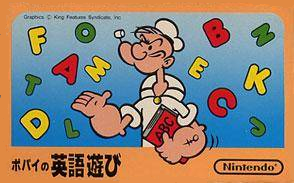
Popeye no Eigo Asobi is a 1983 edutainment platform video game developed and published by Nintendo for the Family Computer. The game was based on the comic strip of same name created by E. C. Segar and licensed from King Features Entertainment. It is a spin-off of the Popeye arcade game made by Nintendo. It was released exclusively in Japan. It was followed by the similar Donkey Kong Jr. Math, which was released about one month later. This game was never released in North America because of the majority of English speakers in the United States and Canada and a corresponding version that would teach players Japanese was not created due to the technical limitations of the Nintendo Entertainment System along with the lack of popularity in the West to learn Japanese aside from cultural or business purposes in the 1980s.

Bookworm is a word-forming puzzle video game by PopCap Games. From a grid of available letters, players connect letters to form words. As words are formed, they are removed from the grid and the remaining letters collapse to fill the available space. Players earn more points by creating longer words or words which use less common letters and earn less for smaller words. In November 2006, PopCap Games released a sequel, Bookworm Adventures. Bookworm was released for the Nintendo DS digital distribution service DSiWare on November 30, 2009. It has also been released on the regular Nintendo DS cartridge. Bookworm is the most downloaded word puzzle game, being downloaded over 100 million times. The Deluxe version of the game features updated graphics, Action Game, and the Hall of Fame.
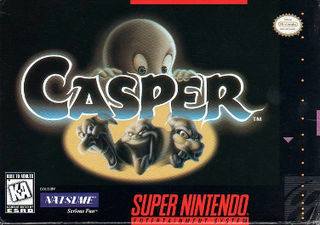
Casper is a series of action-adventure games based on the 1995 film of the same name. Two different games were released in 1996 and 1997 for the Super Nintendo Entertainment System, by different publishers, in different regions. A third game was released for the 3DO, Sega Saturn, PlayStation, and Game Boy Color, published by Interplay Productions. There was also a Game Boy game developed by Bonsai. A PC game, Casper: The Interactive Adventure, and a Game Boy Advance game, simply titled Casper, were released in 1997 and 2002 respectively serving as sequels.

Puzzle Quest: Challenge of the Warlords is a puzzle video game designed by Steve Fawkner for Australian game developer Infinite Interactive and published by D3 Publisher in 2007. The game combines role-playing with tile-matching elements. Taking place in a high fantasy setting, the player moves their character around the game's world and encounters monsters and other enemies to fight so as to gain experience and acquire treasure as in a typical role-playing game. Combat takes place on a board similar to Bejeweled, and by making matches of coloured gems, the combatants can cause damage to their opponents, cast spells, or perform other abilities that affect the flow of the game.
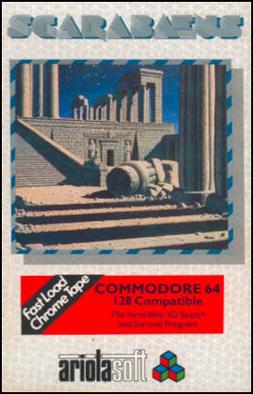
Scarabaeus, known in America as Invaders of the Lost Tomb, is a computer game released for the Commodore 64 in 1985. It was written in Hungary by Andromeda Software and distributed in the UK by Ariolasoft. The storyline features an astronaut and his dog who explore an Egyptian tomb and need to find the Pharaoh's Jewel by solving puzzles spread over three levels. The game is played in first-person view. A sequel was said to be in development in 1986 but was never released.
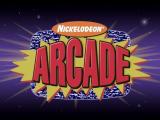
Nick Arcade is an American children's game show created by James Bethea and Karim Miteff and hosted by Phil Moore, with Andrea Lively announcing, that aired on Nickelodeon in 1992. It aired originally during weekend afternoons, with reruns airing until September 28, 1997. In the first season, the shows were taped in December 1991 and aired in early 1992. It was taped at Nickelodeon Studios at Universal Studios Florida in Orlando, Florida. In Nick Arcade, two teams of contestants played two initial trivia rounds, with the winning team advancing to the "Video Zone" to play against the virtual "Video Game Wizard" of the day.
There have been a variety of Sesame Street video games released for video game platforms. Most of the Sesame Street video games were published and developed by NewKidCo.

Magic: The Gathering – Duels of the Planeswalkers 2012 is a video game based on the popular collectible card game of the same name, published by Wizards of the Coast. It was released on June 15, 2011. The game is a follow-up to the highly popular Magic: The Gathering – Duels of the Planeswalkers, which was released in 2009. An expansion for the game, called Ascend into Darkness, was released on September 14, 2011. The sequel, Magic: The Gathering – Duels of the Planeswalkers 2013, was released in 2012.

Scrabble Showdown is an American game show created for the American cable network The Hub. The program was based on the board game Scrabble and was hosted by Justin Willman. It ran from September 3, 2011, to April 15, 2012.

SpellTower is a 2011 word puzzle game developed by Zach Gage. In the game, the player must clear the screen before it overflows by creating words from assorted letter tiles. The game has several game modes and a multiplayer battle mode. The impetus for the game—the concept of combining elements from Tetris and Boggle in what was a prototype of the puzzle video game Puzzlejuice—inspired Gage to create SpellTower. The game was released for iOS in November 2011 to generally favorable reviews. Versions for OS X and Android followed over the next two years. In 2017 SpellTower Minutes was released. This browser-based Flash game created special "blitz" like modes not found in the mobile releases. A new iOS version released in 2017 swapped out the unnamed dictionary and began using Merriam-Webster's Third New International Dictionary, Unabridged. French and Dutch language specific versions were also released. A 2020 release, SpellTower+, added new game modes, cleaner visuals, and a jazz soundtrack.

















